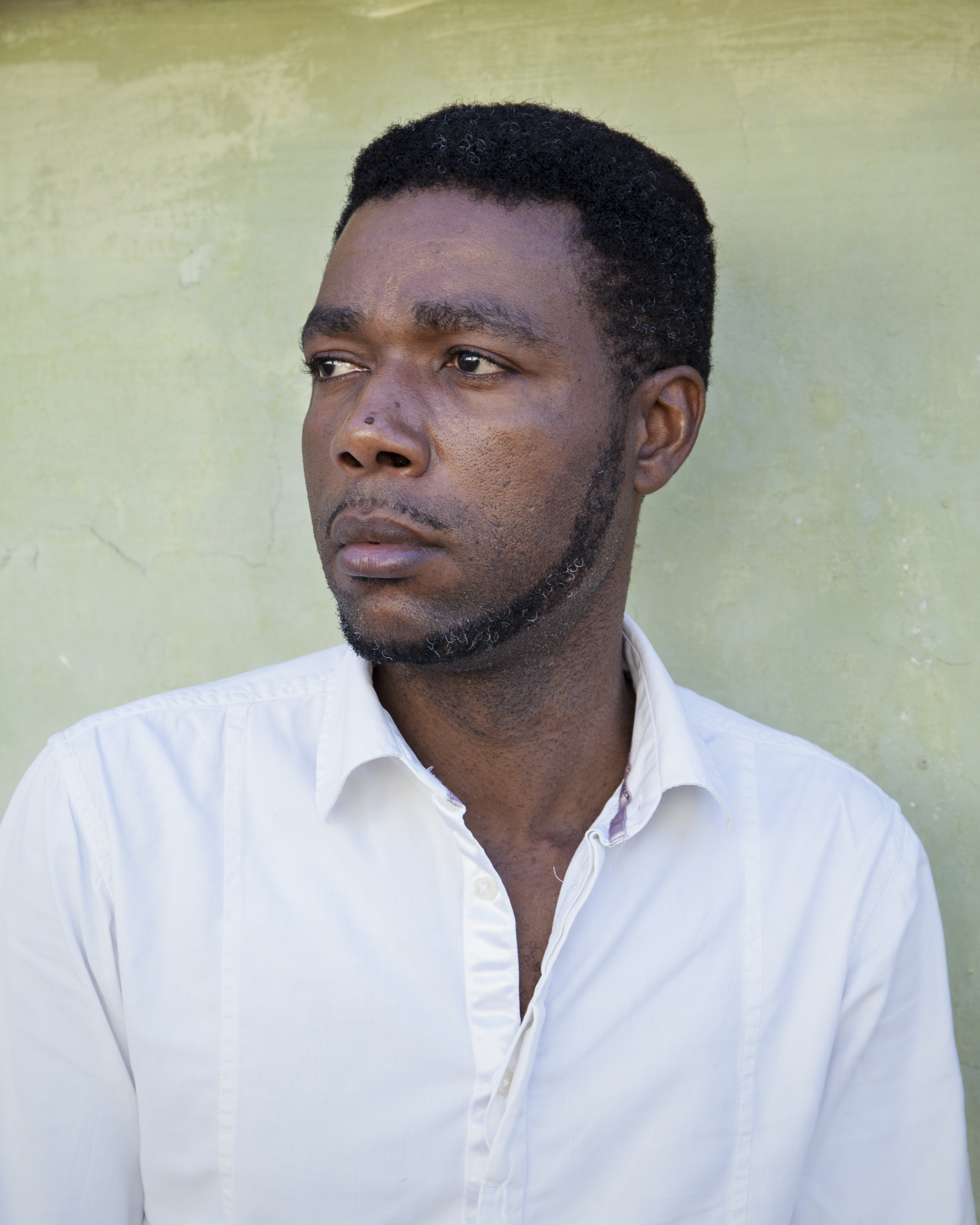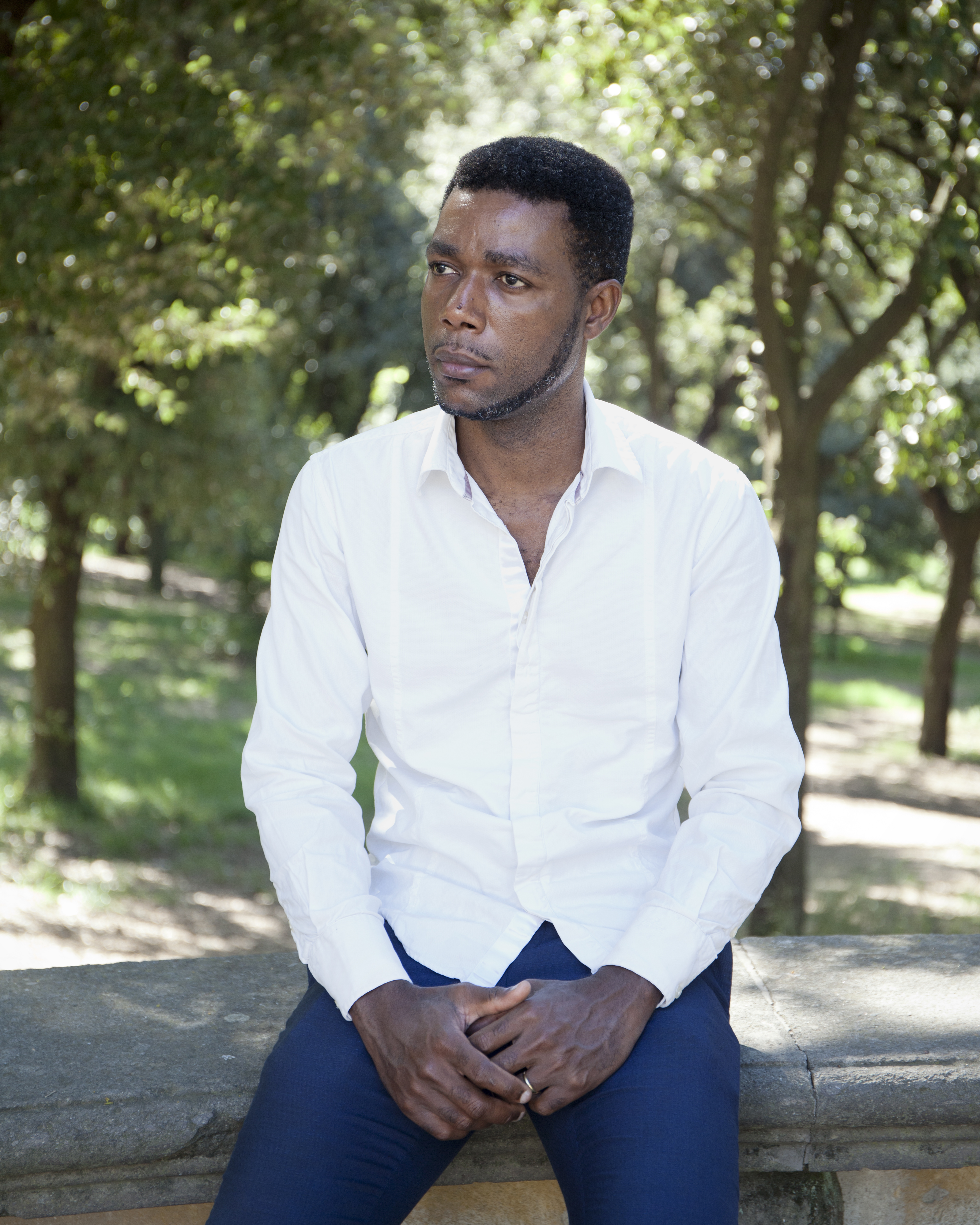Fonte articolo originale: vice.com – At 26, Yvan Sagnet organized the “Nardò uprising,” a two-month strike held by migrant workers which led to the trial of 12 people for slavery and the first anti-gang-master law in the country.
This story appears in VICE Magazine’s Power and Privilege Issue. Click HERE to subscribe.
Yvan Sagnet was born in Cameroon in 1985, but grew up dreaming of Italy. From the time he was a child, he had always been fascinated by the country and, most of all, by Juventus FC, a soccer team from Turin, and its most famous player, Roberto Baggio. So when he was granted a student visa to attend the Polytechnic University of Turin in 2007, his dream suddenly seemed within reach.
When Sagnet arrived in the town of Nardò, in Puglia, he was shocked: The area was scattered with improvised camps where around 800 day laborers—mostly migrants, both legal and undocumented—were being exploited by so-called caporali (gang masters). The caporale’s job was to find readily available handpickers on behalf of farmers, eventually taking a cut from the worker’s wages while also charging them for the most basic amenities, like transportation, food, and water.
At the farms, migrants were made to work for up to 14 hours a day in extreme heat without an employment contract, earning far below the minimum wage. “I discovered the dark side of Italy,” Sagnet recalls. “A side made of ghettos, with migrants living in inhumane conditions, often sleeping either on the ground, in tents, or in makeshift shacks.”

Sagnet decided that leading a strike seemed the only solution to that kind of abuse. And so, in summer 2011, the then 26-year-old helped organize the “Nardò uprising”—the first large-scale strike held by migrant laborers in Italy. For two months that summer, migrants refused to work in a bid to improve their working and living conditions. The outcome was disruptive. Before then, no one had dared to challenge the power of gang masters and corrupt farmers in Nardò.
But for Sagnet, it was just the beginning. In 2012 he wrote a book about the uprising called Love Your Dream, then joined CGIL (Italy’s biggest labor union), through which he conducted a series of investigations into the treatment of workers across the country. He is now the leader of No Cap (No Caporalato), an organization fighting against the exploitation of migrants in Italy.
In 2011, life in masseria Boncuri—as the ghetto was known—was in the hands of the gang masters. They demanded to be paid for almost everything, from water and food to transport and mattresses. The long work shifts under the blazing sun were unbearable.
“To me it wasn’t just exploitation, it was modern slavery,” says Sagnet. “Gang masters would verbally and physically abuse us. I knew from very early on that we needed to do something radical like revolt.”
“I discovered the dark side of Italy. A side made of ghettos, with migrants living in inhumane conditions, often sleeping either on the ground, in tents, or in makeshift shacks.”
The opportunity to convince others came when the caporal decided to require all workers to start picking tomatoes one by one instead of scooping them in bunches, a slower technique which meant working longer for the same amount of money. For Sagnet and his colleagues, that was unacceptable considering the little they were already getting paid. When the gang master refused to listen, they decided to stop working, launching a minirevolt.
Sagnet and the organizers had to mobilize nearly 1,000 workers who didn’t share the same language, culture, or nationality. Convincing them that taking action was in their best interests was the first big challenge. “Many people had been working like that for years, so they were used to it,” Sagnet says. “They assumed going on strike would be pointless.”
At first, only a small minority wanted to take action. “We had to gain people’s trust,” he says. “And we did so through a campaign of information—organizing meetings that clearly outlined our objectives—and with a very practical social outreach strategy.”
On the first day of the strike, Sagnet organized a roadblock on the highway between Nardò and the city of Lecce, one of the region’s main arterial roads, to get the attention of the local authorities and the general public about the working conditions.
The second step was to organize protests to block access to the farms. “The day after we set the picket, we could already see that we were making a difference,” Sagnet recalls. “Masseria Boncuri had created a production standstill on the farm, and that’s when I knew we were winning.”
There was one obvious downside to going on strike: The workers were not getting paid. “Since I had become a referee of sorts,” Sagnet explains, “workers would come to me and ask what I was going to do about the fact that they had nothing to eat. Going on strike wasn’t the same for Italians and migrants—as a migrant you’re on your own, often without an extended family or support network to lean on.”

Facing a potential hunger crisis, Sagnet had to come up with a plan. With the help of volunteers and activists, Sagnet and his team decided to reach out to the general public for help. “The response from the people of Nardò and across Italy was overwhelming,” he says. Before the strike they had no idea the scale of what was going on in their own region, Sagnet tells me. “Donations were coming in from all over the country. Every night, people would bring rice, milk, bread. This is how we didn’t starve.”
To keep their wider support network going, they worked hard to educate the public on the issue by developing strong relationships with the media. Sagnet used part of that relationship to highlight how the migrants in particular were taking a huge risk by going on strike to stand alongside Italians in their fight for workers’ rights. “Our cause showed immigrants in a different, positive light,” he says. “After all, it was everybody’s struggle.”
Sagnet’s focus on the struggle eventually paid off. The Nardò uprising inevitably put pressure on politicians, who in turn responded by approving the first anti-gang-master law—legislation that stopped agents from cutting into the workers’ wages. The strike also led some local farmers to introduce regular contracts, giving more money to the workers. (The regular contracts and higher wages are independent from the law; they were implemented as a side result by the local farmers in Nardò.) All this was introduced just a week after the strike ended, in September 2011. “For us [the law] was a huge success, because it finally gave the police a tool to crack down on gang masters,” Sagnet explains. “By the end of the 2011 harvest season, we had gone from 3 percent of workers having employment contracts to 60 percent.”
“Our cause showed immigrants in a different, positive light,” he says. “After all, it was everybody’s struggle.”
In addition, charges were eventually brought against the gang masters and farmers who had exploited the workers, leading to a 2017 trial in which 12 people were convicted of enslavement and human trafficking.
After the uprising, Sagnet started working for CGIL. “I asked [CGIL] to change their approach: to go into the fields and see the exploitation for themselves.” By taking that approach, Sagnet adds, “We discovered that the same system that was in place in Nardò was widespread.”
Sagnet has since made it a priority to raise awareness among migrant agricultural workers—who, according to his estimates, make up 60 percent of this seasonal workforce. “Workers in the ghettos don’t know what unions are,” he tells me. “They do not speak Italian or have access to information. They think it’s normal to live and work like that. Without help, there can be no investigations or arrests.”
On the contrary, he adds, if workers aren’t involved, “those who exploit us and put us in those conditions will always win. Authorities are either slow, or complicit, or corrupt. What I’m seeing is a class struggle going on—but at the moment there’s just one side, the one represented by power.”


